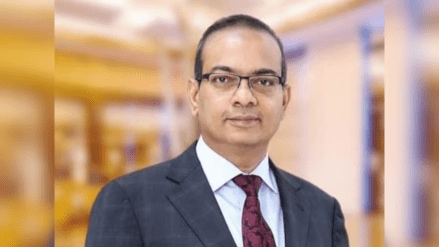With the Capgemini deal set to conclude by October end, WNS chief executive Keshav Murugesh discusses with Urvi Malvania the path to completion, the firm’s growth model and its efforts to prepare leaders and employees for an AI-driven future. Excerpts:
What is the status of the Capgemini-WNS transaction?
We have received overwhelming approval from our shareholders and all required antitrust approvals. The final clearance is from the Jersey courts, which we expect around mid-October. By the end of October, the transaction will be completed, with shareholders paid out, after which WNS will become a fully owned subsidiary of Capgemini. Until then, we continue to operate as two separate companies, and integration will only begin post-closure.
How are you engaging with clients during this transition?
I have been proactively engaging with customers and explaining the exciting future of this combination. Clients have responded very positively, recognising the value of two strong leaders coming together at a time of significant change, particularly with generative AI (GenAI) and agentic AI shaping the industry. They appreciate WNS’s track record of operational and digital excellence and see the potential of combining it with Capgemini’s strong technology and consulting capabilities.
WNS has spoken about delinking headcount from revenue growth. How has that worked in practice?
Over the past 4-5 years, WNS has grown at double-digit rates and has also increased headcount during this period, including through the Covid years. Our approach has been to invest in people, technology and intellectual property (IP), while driving productivity by introducing platforms and technology-led solutions instead of simply adding headcount offshore. This has sometimes meant cannibalising revenue in the short term, but it has built long-term trust with clients and allowed us to keep growing sustainably.
How is WNS preparing for the future of intelligent operations?
Upskilling and reskilling are ongoing priorities, as technology evolves every day. We continuously elevate the skills of our employees so they can deliver to clients effectively. Looking ahead, there will be increasing demand for data scientists and engineers, alongside our traditional focus on strong domain expertise. We also work closely with universities and partners to ensure we have the right talent pipeline in place across our markets.
How are you preparing your leadership for the AI age?
We have a very disciplined programme for our top leaders to expand their management capabilities. Around 200-250 leaders regularly undergo structured programmes with institutions such as the IIMs and Harvard Business School. We also run targeted initiatives, such as a women’s leadership programme with IIM, to prepare the next generation of senior managers. Ultimately, leaders must not only manage talent but also run P&Ls effectively — selling, operating efficiently, controlling expenses and delivering profitability. We provide the inputs and training, but equally important is the hunger each leader must have to stay competitive and relevant in today’s environment.
What role do you see for India in the AI-led future of business?
India presents a significant opportunity. We are seeing strong growth in global capability centres (GCCs), and while GenAI may disrupt some revenue streams, it also creates large new possibilities. The bigger challenge and opportunity for India is to build scalable large language models (LLMs) in regional languages, which can drive job creation and new business models relevant to the domestic market. Alongside this, continuous upskilling and reskilling remain critical to ensure the Indian workforce is ready for the future.
